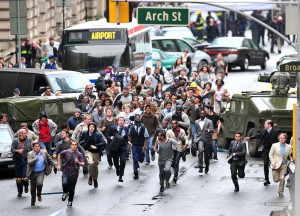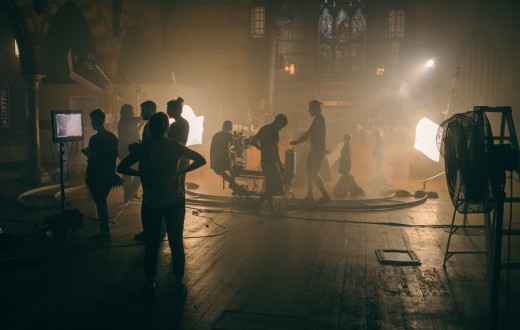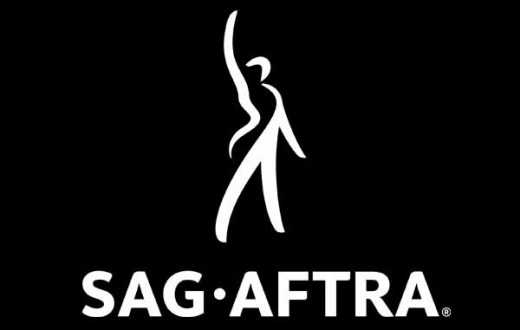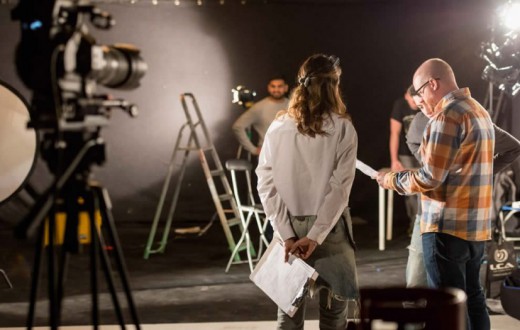You saw the casting notice on NYCastings, you sent in your best headshot, and the rest is out of your hands. Until, suddenly, you get a late night call from casting saying that you’re needed on set — for one of your favorite TV shows! Okay, so it’s not exactly the speaking role you’ve dreamed of, but it’s a first step. Background acting work is something that many beginners turn towards to get their first taste of the dream. You get to work on a real, professional, working set, familiarize yourself with the different positions of a film crew, and maybe even sneak a peak of your favorite actor at work. But at the end of the day, it’s still a job. That you’re getting paid for.
According to experienced background casting director Rita Powe rs, the average non-union background actor gets paid somewhere around $100 for a typical day of work, while a union actor — as in an actor who is a member of the film and television union SAG-AFTRA — usually receives an average of $157 for the average 8 hour day. While overtime payment of hourly payment and half can be offered once the shoot falls into the 9-12 hour range, payment can even grow to be double time when a shoot goes into it’s 13th, 14th, or even 16th hour — and yes, days can be that long. And while this might not seem like much compared to the incredibly large Hollywood salaries we always hear about in the tabloids, for the beginning actor it can be the job that lets them stop waiting tables for a day and network.
rs, the average non-union background actor gets paid somewhere around $100 for a typical day of work, while a union actor — as in an actor who is a member of the film and television union SAG-AFTRA — usually receives an average of $157 for the average 8 hour day. While overtime payment of hourly payment and half can be offered once the shoot falls into the 9-12 hour range, payment can even grow to be double time when a shoot goes into it’s 13th, 14th, or even 16th hour — and yes, days can be that long. And while this might not seem like much compared to the incredibly large Hollywood salaries we always hear about in the tabloids, for the beginning actor it can be the job that lets them stop waiting tables for a day and network.
Despite background work often being conceived as a distraction from a principal acting career, depending on what the blooming actor is looking for, there are different levels of value one can get out of a day on set. “Well, to be honest with you, I started people’s careers as extras,” explained Powers, “I got [principal work for] one guy who’s in LA now and he’s very visible because he started doing extra work. People think that extra work may not take them anywhere. But, you know, A — it pays you. B — you’re getting an education while you’re on set.” And besides networking with the background casting director, it’s also essential to network while you’re on-set with the crew. “You don’t know who’s on the set today who could be a director, or an assistant director, producer, tomorrow,” Powers continued. And to back up her point even further, Christopher Pasi — who has worked as a background production assistant on professional sets ranging from Teenage Mutant Ninja Turtles 2 to HBO’s Vinyl — couldn’t seem to agree more! “I’ve worked with an AD who actually would text and call certain extras and certain background to work with consistently because he knows they work well, and he develops a relationship with them,” he explained, “So if you develop a friendship with an assistant director, they will definitely let you know when there’s bigger shoots to try and get on. And they’ll be like ‘Alright, I want to work with you again so that we’ll get you in the shot.’”
But how do you stand out when sets can include 70 to 100 to even 1,000 background actors at a time?
 First tip: Show up! In fact, out of all of the non-union actors called for a shoot, about “20% don’t show up” according to Rita Powers. And casting background actors can be a more complex process than most people realize. Oftentimes, in order to increase your background booking ratio, you need a headshot that accurately shows what you look like, an array of special skills (Do NOT lie on your resume!), different costume options (ranging from scrubs, to wigs, and even work uniforms), and availability for an entire day (or even multiple days at a time). And once you get the job, it’s a whole new ballgame. “What I came to notice was the extras that really committed to being a character, and being a persona, were the ones that ended up actually being pulled into the frame more, being talked to more, and being utilized more,” Pasi recollected, “I know you’re not necessarily supposed to stand out as a background actor, but if you’re doing something that is unique, then all of the sudden the director or the AD [assistant director] would be like, ‘This guy is really funny. He knows what he’s doing. Let’s put him over hear so that he’ll actually get in the shot.’” And the on-set experience will also end up being a lot more fun this way! “Really take it seriously. I know people get complacent when they’re doing extra work because they’re just an extra, and you don’t know if you’ll get in it, but half the time you’re there to help create the whole ambiance and the whole atmosphere. And if you’re really committed to it, it gets noticed,” he continued.
First tip: Show up! In fact, out of all of the non-union actors called for a shoot, about “20% don’t show up” according to Rita Powers. And casting background actors can be a more complex process than most people realize. Oftentimes, in order to increase your background booking ratio, you need a headshot that accurately shows what you look like, an array of special skills (Do NOT lie on your resume!), different costume options (ranging from scrubs, to wigs, and even work uniforms), and availability for an entire day (or even multiple days at a time). And once you get the job, it’s a whole new ballgame. “What I came to notice was the extras that really committed to being a character, and being a persona, were the ones that ended up actually being pulled into the frame more, being talked to more, and being utilized more,” Pasi recollected, “I know you’re not necessarily supposed to stand out as a background actor, but if you’re doing something that is unique, then all of the sudden the director or the AD [assistant director] would be like, ‘This guy is really funny. He knows what he’s doing. Let’s put him over hear so that he’ll actually get in the shot.’” And the on-set experience will also end up being a lot more fun this way! “Really take it seriously. I know people get complacent when they’re doing extra work because they’re just an extra, and you don’t know if you’ll get in it, but half the time you’re there to help create the whole ambiance and the whole atmosphere. And if you’re really committed to it, it gets noticed,” he continued.
So, what does that mean for you? Submit for the roles that interest you and, from there, be sure to show up prepared — with all of your required costumes, be on-time, and don’t be in the way of production too much. Even though you’re in the background, you still are there to do a job and to play a character — no matter how small it may be. Have fun! Connect with others! And be ready to do the best you can! Because isn’t that what working on a movie set is supposed to be all about anyway?







